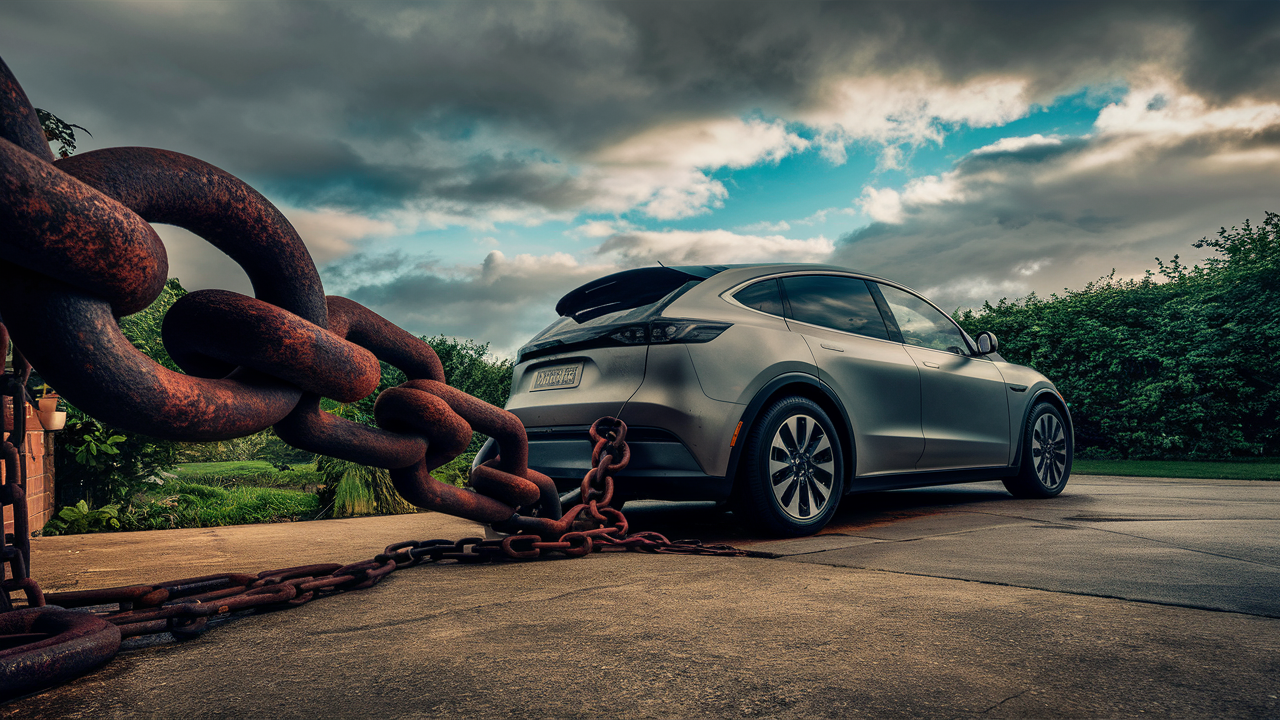5 Ways Electric & Self-Driving Cars Could Reduce Your Freedoms Dramatically
Electric vehicles could very well mean the end of freedom of movement — in some cases.

For many car enthusiasts and petrolheads, driving is more than just getting from A to B. It's a lifestyle, a passion, a symbol of freedom to go where you want, when you want. But the rise of electric and autonomous vehicles brings some potential threats to that freewheeling way of life. Here are 5 ways EVs and self-driving cars could end up putting the brakes on your driving freedoms:
Key takeaways:
- Automakers having the ability to remotely brick or disable your vehicle takes away your full ownership and control as the driver/owner.
- Self-driving cars constantly sending data back to centralized systems means your location and travel patterns could be closely tracked and monitored.
- The autonomous driving system overriding your inputs and decisions goes against driving enthusiasts' desire to have full mastery and command over operating the vehicle themselves.
5. Big Brother Ability to "Brick" Your Ride
With modern connected vehicles, manufacturers have the ability to remotely disable cars if needed. While intended as an anti-theft measure, one could imagine a scenario where this capability gets abused to restrict vehicle access or usage by dictating when, where and how you can drive. Your car is no longer fully your own if it could get shut down remotely on a whim.
What if you missed a payment and the automaker decided to hold your vehicle hostage until you paid up? Or if the government wanted to prevent travel in certain areas by bricking cars en masse? These scenarios give corporations and authorities a concerning degree of control over a product you thought you owned outright.
4. Surveillance State Tracking Your Every Move
Self-driving cars need to be constantly connected and feeding data back to centralized systems to function properly. That feeds concerns about the privacy implications of having your vehicle's location and travels monitored 24/7 by big tech companies or government entities. For wilderness explorers, off-grid nomads and free spirits, that could feel like a real loss of independence and intrusion on their lifestyles.
Do we want to live in a world where your every spontaneous detour and back-road adventure is tracked, perhaps even inadvertently exposing your favorite fishing holes or romantic getaway spots? The car could become an Orwellian surveillance tool rather than a vehicle for escape and privacy.
3. Computer Overlords Overriding Your Inputs
The whole point of a self-driving system is taking over control of the vehicle from the human driver when active. So by definition, you're sacrificing some independence and autonomy in terms of having full command over where, when and how you drive. Some autonomous concepts even propose remote human operators who could wrest control from you if the system detects anomalies or doesn't like your driving inputs.
For driving purists who see operating a vehicle as an essential skill and source of pride, this could feel like an unacceptable compromise. Having to wrestle with the computer for control or getting overridden could take a lot of the fun and freedom out of driving. It reduces you to a mere passenger dictated to by algorithms.
2. Government Regulation Crimping Customization
Governments are already grappling with how to regulate the new legal landscape around autonomous vehicles and their unique liability and safety considerations. There's a risk that overly strict rules and red tape could severely limit the ability to customize and modify these high-tech rides the way petrolheads love to tinker and personalize their current cars and trucks.
We could see narrow ranges of approved software and hardware configurations, requirements for costly certifications, and stiff penalties for unofficial mods or hacking. This cuts against the vibrant car culture of taking pride in building your own unique ride tailored to your performance desires or aesthetic tastes. The fun of the garage enthusiast may get legislated away in the future if we aren't careful.
1. Unplugged by Dead Batteries and Recharge Wait Times
Finally, let's not forget the practical limitations of EV battery range and recharge times compared to just filling up a gas tank. The possibility of getting stranded with a drained battery and then having to wait around hours to regain range could feel like a real restriction on long road trips and remote exploring for EV skeptics used to the flexibility of gasoline.
Imagine being out on a scenic mountain road only to get the dreadful low battery warning miles from the nearest charging station. Or being stuck waiting at a road trip pit stop for 45 minutes rather than just a quick splash of gas and back on the road in 5 minutes. For some drivers, that loss of time, unpredictability and dependence on charging infrastructure could cramp their spontaneous travel plans and feel like a step backwards in automotive freedom after decades of increasing range.
On the other hand, many of these concerns may be overblown. Automakers insist remote control features are just for extreme situations like stolen vehicles, not casual interference in owners' usage. And they have strong financial incentives to protect customer privacy and autonomy to sell more cars without backlash.
Self-driving tech could also enhance freedoms in other ways, like enabling the disabled or elderly to get around independently. And while regulation is certainly needed, governments seem inclined to take a light hand so far to avoid stifling innovation in a burgeoning new industry.
All that said, there's no denying the rise of EVs and autonomy represents a massive shift from the put-the-pedal-down, rules-of-the-road mentality of traditional driving that car enthusiasts adore. So as these technologies go mainstream, gearheads have valid reasons to keep a watchful eye on safeguarding our hard-won personal mobility freedoms. The open road should stay open for drivers who want to embrace progress at their own pace!